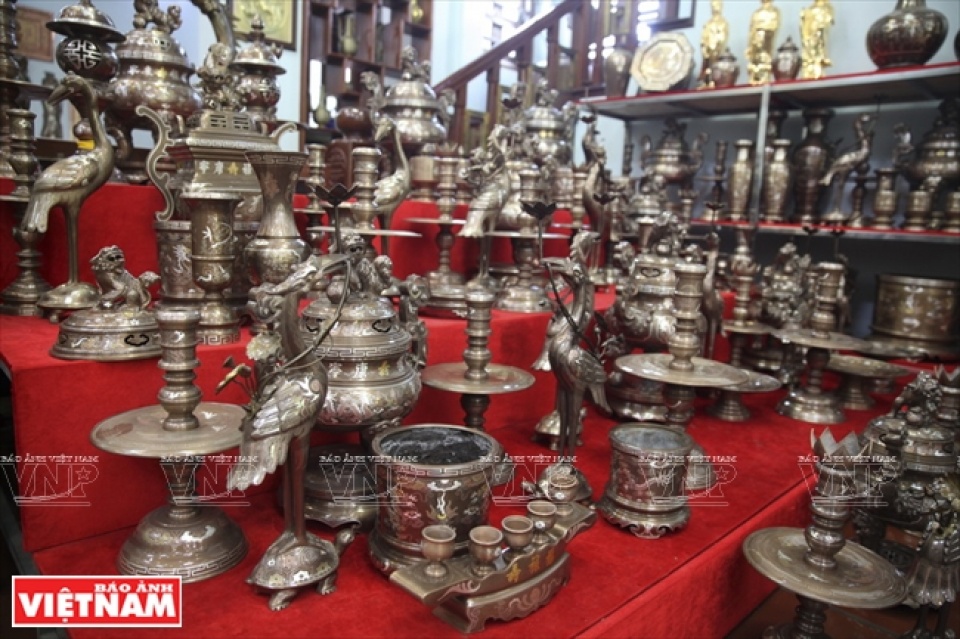A visit to Dai Bai bronze casting village
According to the village’s historical records, the bronze casting craft was begun in Dai Bai in the early 11th century by founder Nguyen Cong Truyen.
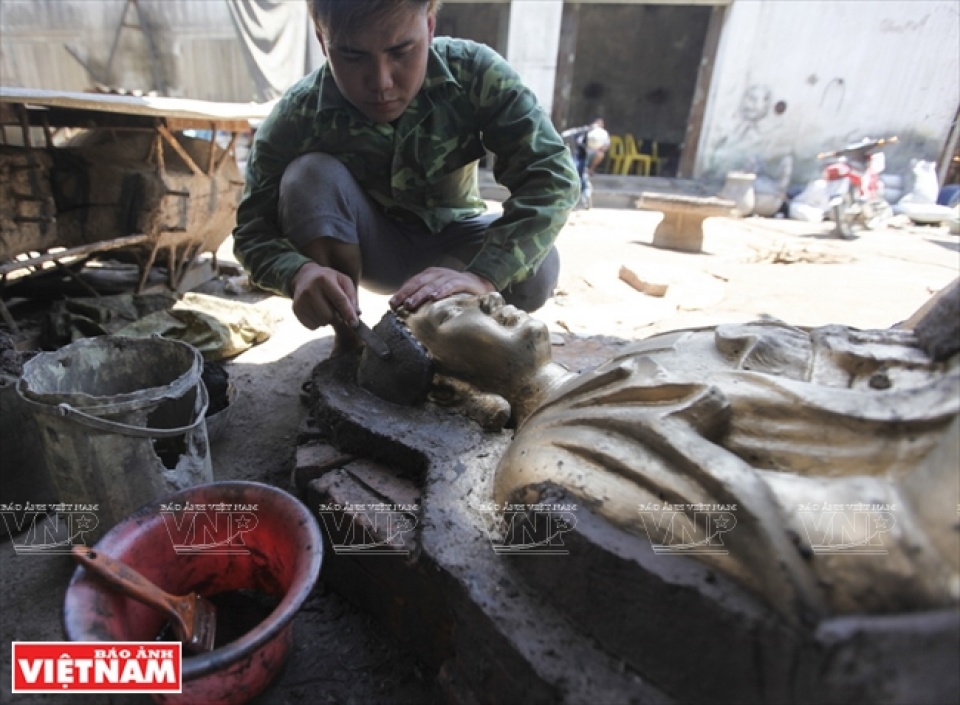 |
About 200 years ago, some craftsmen from the village moved to Thang Long Citadel, now called Hanoi, to establish a handicraft guild.
That became Hang Dong, or Bronze Street, in downtown Hanoi, which specializes in bronze household utensils and fine arts pieces.
We visited Dai Bai on a sunny day. Far from our image of a craft village in the northern delta, Dai Bai looks like any urban street with pavements and multi-storey houses.
Next to showrooms are workshops that reverberate with the sound of hammers and the noise of commercial vehicles.
The last vestiges of the ancient Dai Bai village are the temple worshipping craft founder Nguyen Cong Truyen, the Van Lang communal house, the Dien Loc communal house, Dien Phuc pagoda, and stories retold on the death anniversary of the craft founder on the 29th of the ninth Lunar month.
Nguyen Xuan Sam, a village elder, said “At first, Dai Bai craft village’s 4 hamlets specialized in making household utensils. The second generation of the village had 5 people with PhD degrees."
"After they were promoted to high positions, they became interested in expanding local bronze casting and establishing specialized guilds. Since then the four hamlets have produced four types of products, namely copper pots and trays, water pots, betel boxes, and devotional items. Despite the increasing use of machines in craft production, the 4 hamlets still preserve their traditional crafts.”
Thanks to its division of labor, Dai Bai has maximized its development. Its techniques and designs have become more sophisticated. New items such as incense burners and bronze statues have been added.
Dai Bai’s bronze products are purchased by traders who resell them all over the country.
Artisan Nguyen Van Luc said: “The predecessors gave their descendants many advantages in this work. Today’s younger generation quickly acquire the craft techniques and cultural values that make the village’s traditional products.”
Dai Bai has diversified its production to bronze statues, bronze incense burners, flower vases, four-season pictures, tea sets, devotional items, and inlaid pictures, which are now exported to China and other Asian countries.
The village has about 70 enterprises employing 700 households. Nguyen Van Trung who began bronze casting at the age of 14 is now famous for his casting and carving skills.
“My family has long made vases, incense burners, and statues of Buddha. Of course, we have trade secrets and vast experience but the most important thing is our love of the craft to turn out beautiful products,” said Trung.
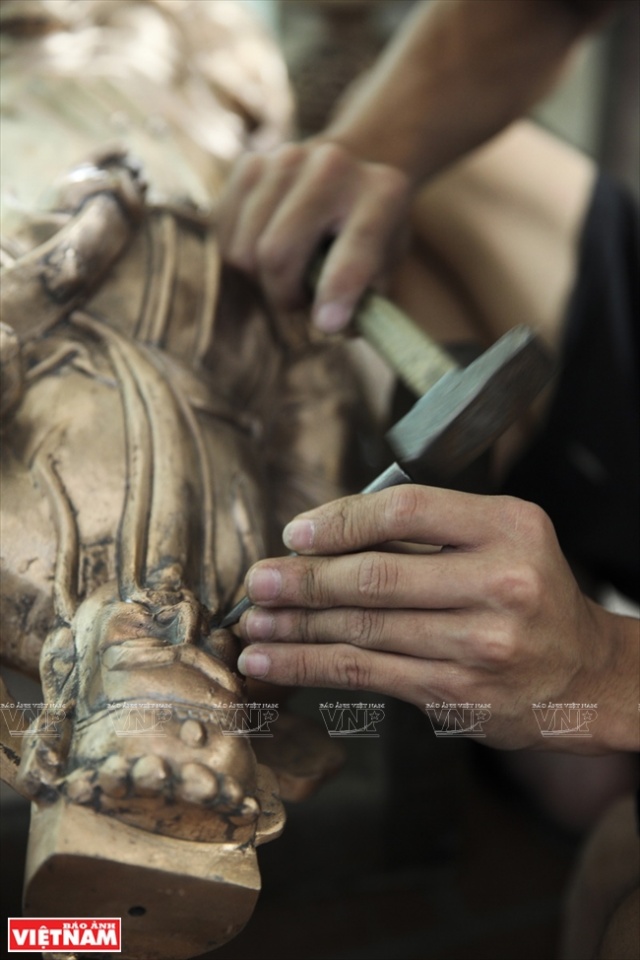 |
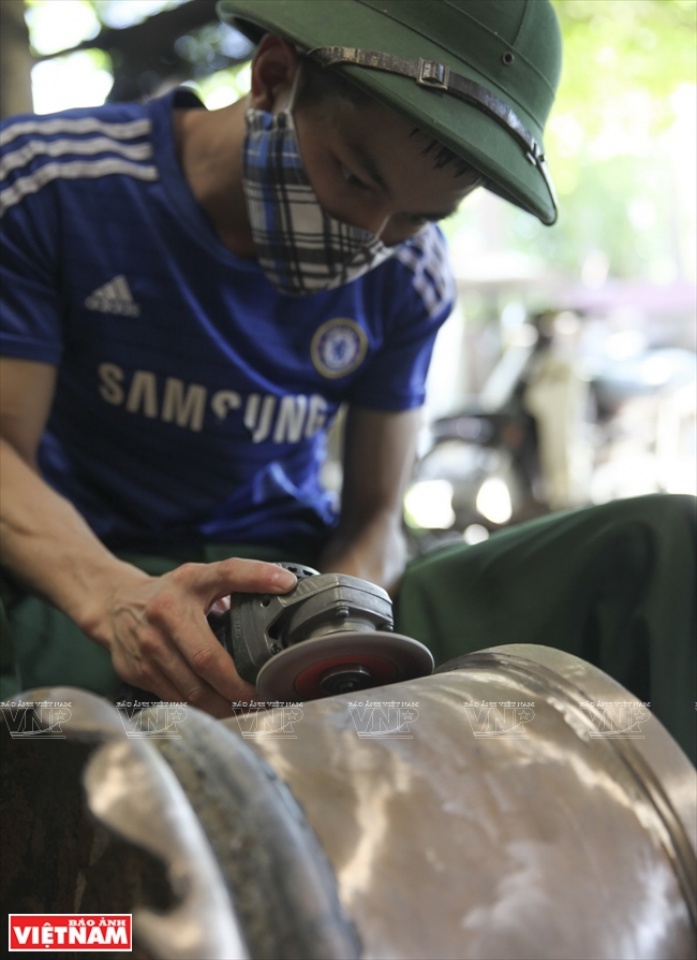 |
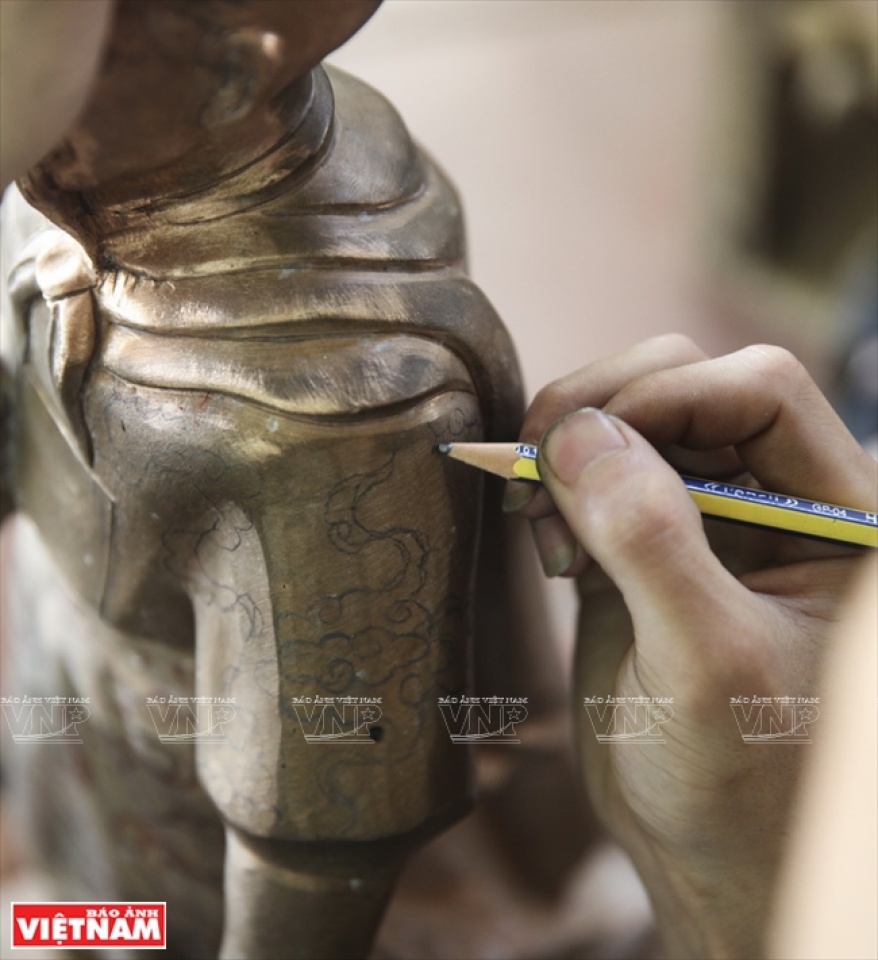 |
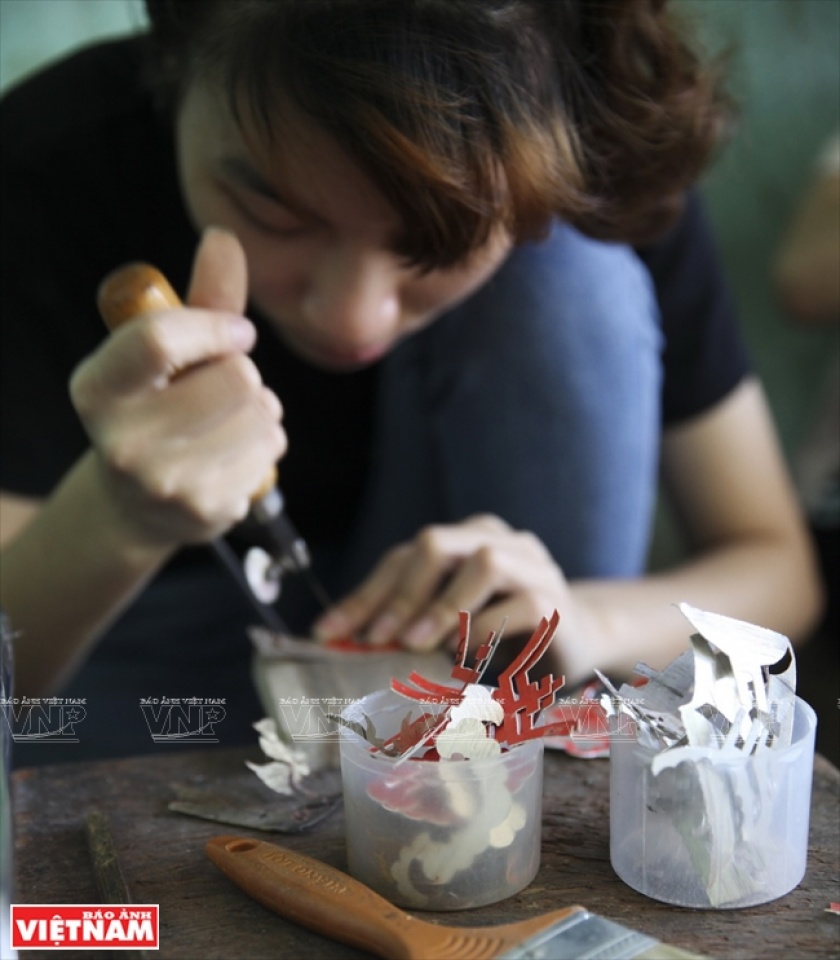 |
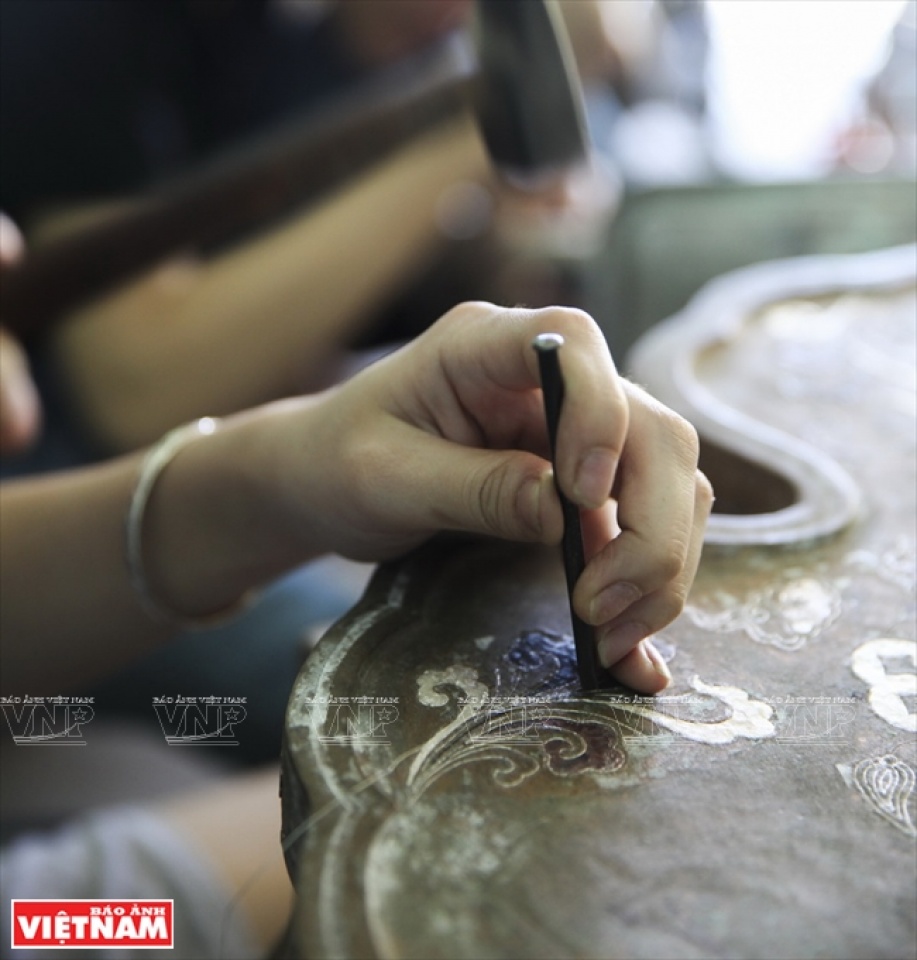 |
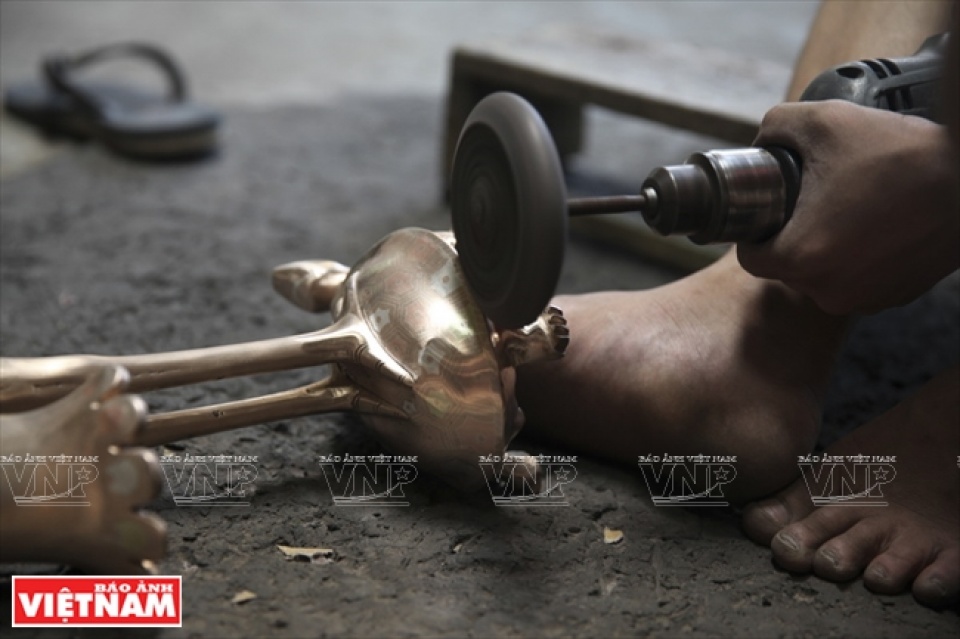 |
|
|
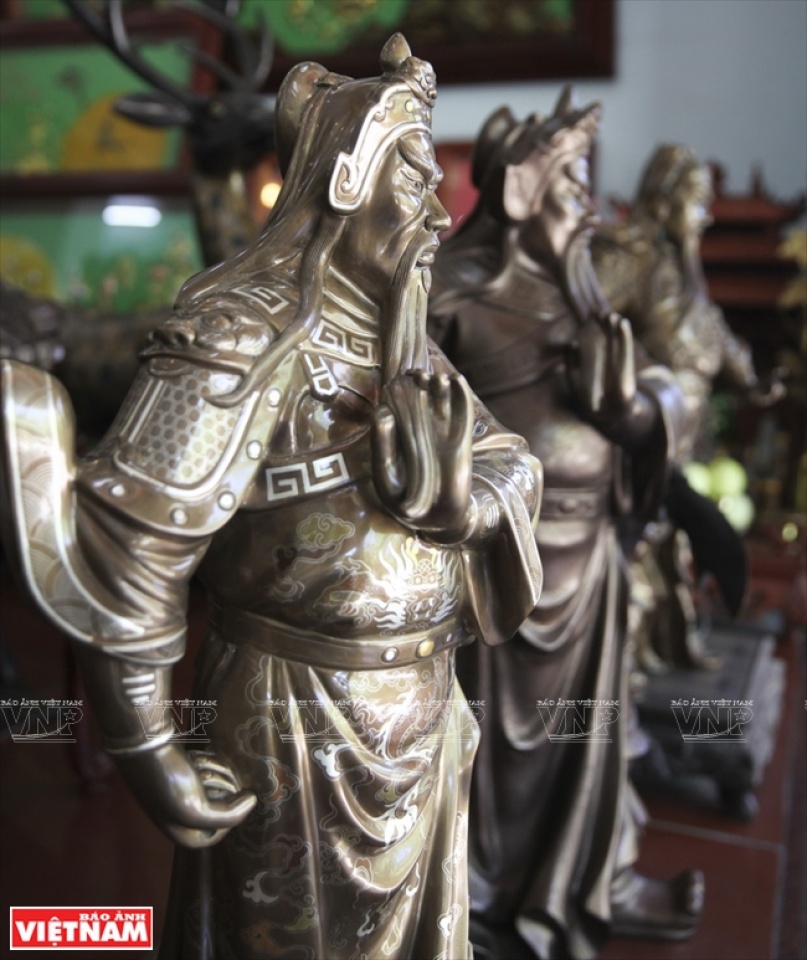 |
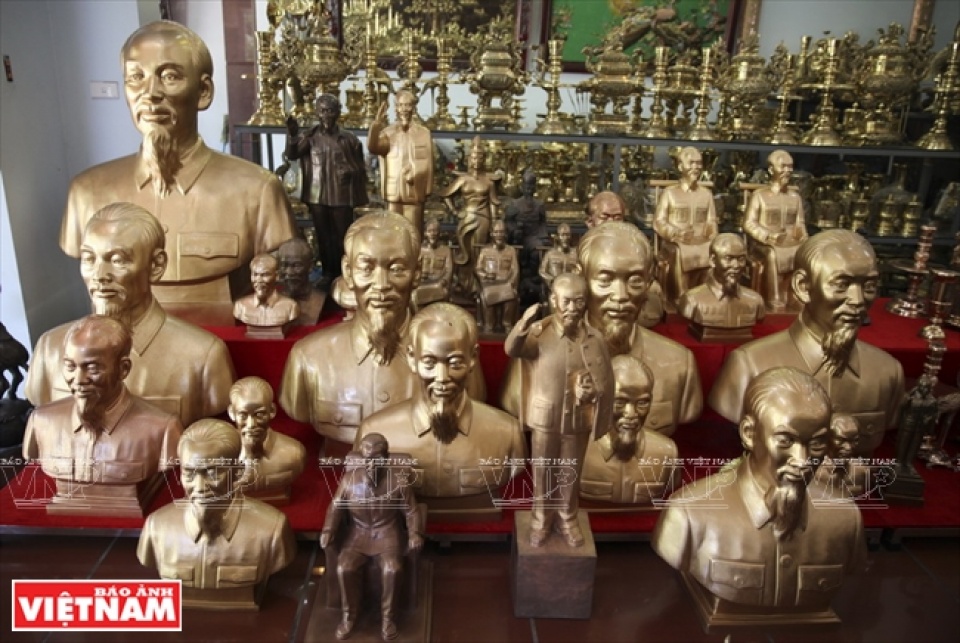 |
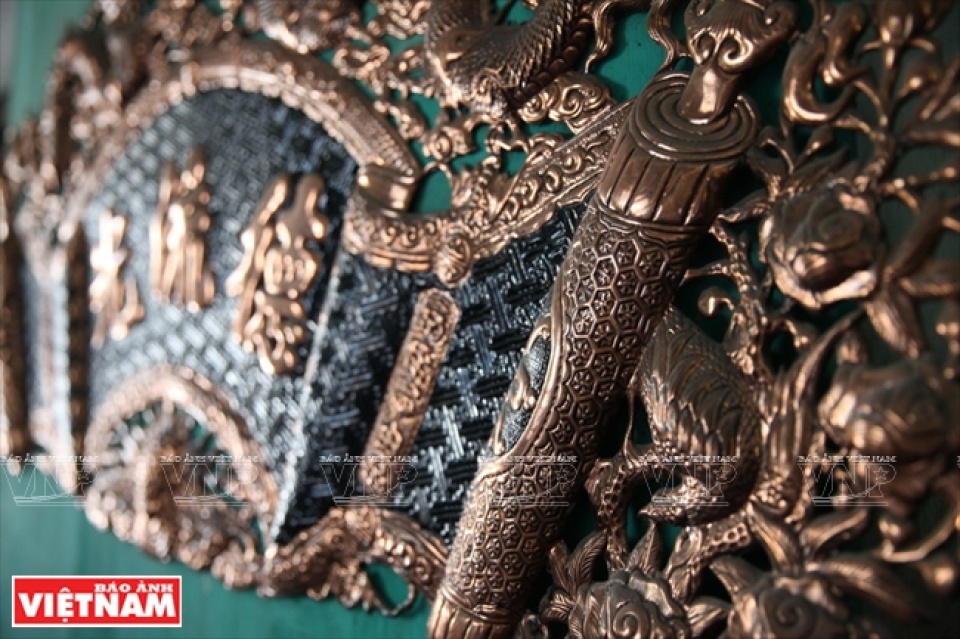 |

